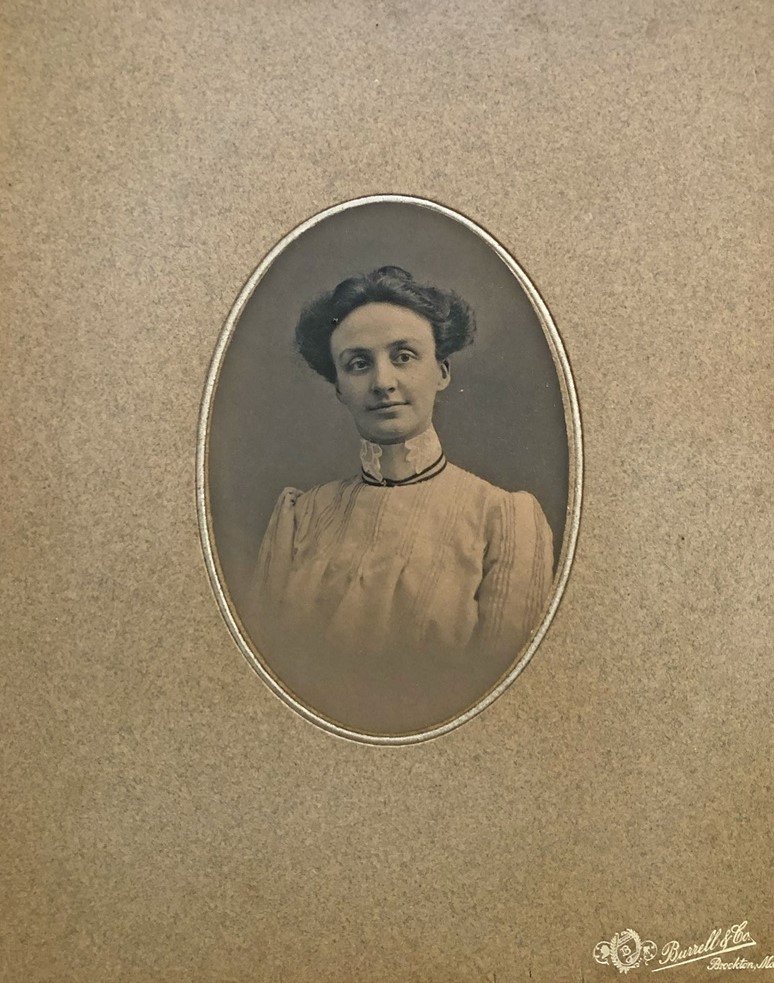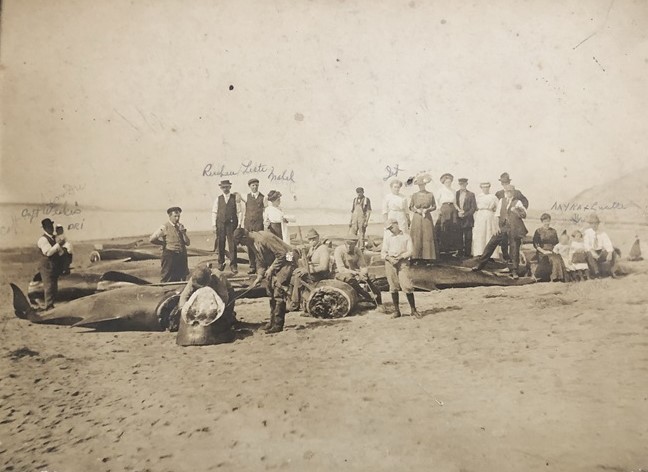Betsey Snow Horton Moehlich, 80, lives in Eastham, in the house on Pilgrims Path her mother built. She is the caretaker of her family’s history on the Cape, stockpiling photographs and stories passed down over the decades.
Most of Moehlich’s cherished stories come from her mother, Margaret, and her grandmother Celia Lee, who was born in the 1870s — Moehlich does not know her exact birthdate. Celia had four sisters and three brothers; they lived in a white clapboard house on Briar Lane in Wellfleet.
One brother died in that house at 25, after going to Boston to work and contracting malaria from a ship in the harbor, she says. Another went to work at the lifesaving station on Cuttyhunk Island.
Celia’s ancestor Nicholas Snow crossed the Atlantic in the Anne in 1623 and, after arriving at Plymouth, set out for the Cape and settled in Eastham.

In 1892, in her early twenties, Celia went to Bridgewater State College to become a teacher. Decades later, her daughter Margaret moved to Whitman and returned to the Cape only in the summers, when she met Moehlich’s father, Darius Horton, the son of a preacher in Wellfleet. Their family had come from England not long before and first settled in Harwich. Margaret came back to live in Eastham in the final years of her life.
The house on Briar Lane belonged to the Lee girls until the last died in 1946. It never had running water, electricity, or double-paned windows, Moehlich says. Just an outhouse, a pump in the kitchen, and a fireplace in each room. Friday night dinner was codfish cakes, Saturday night brought baked beans and franks, and preserved fruits and vegetables from the garden were eaten in the winter.
“My mother said they never ate lobster,” says Moehlich. “They were abundant, but that wasn’t something that people ate.”

On Sundays, the Lee family would go to church. The girls’ grandfather, Frederick Snow, sat at the very front on the left. He was hard of hearing, so that was his designated seat. In 1920s Wellfleet, the girls were forbidden to play croquet; instead, after church, they could go to the cemetery and lay flowers on their relatives’ graves. After church, Margaret, born in 1912, would go out and fetch eggs.
Margaret “wanted to go down to the beach on Sundays, but I don’t think she could even do that,” Moehlich recalls. “She was kind of upset about that.”
Margaret’s grandfather Fred, born in 1837, was a fisherman. He had a schooner called The Pleiades; its 11-foot-long quarterboard sits in Moehlich’s basement. He fished for cod, herring, and bass on the Grand Banks.
In one undated silvery photograph, Moehlich’s paternal grandfather, Lester Horton, stands proudly beside a dozen beached blackfish in a crowd in Wellfleet. The women wear feathered hats and corsets, gazing down as the men set to harvesting oil to light their lamps at home.



